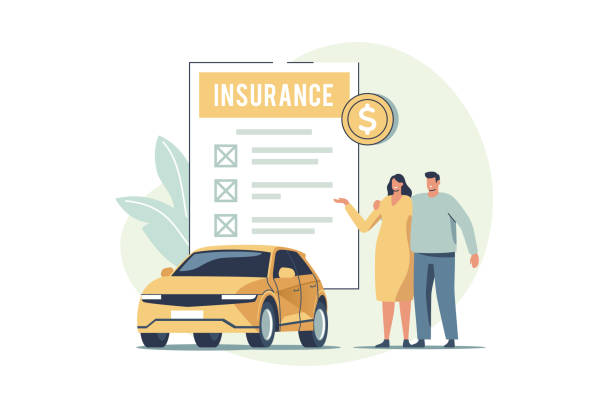Understanding Car Insurance: Benefits, Pros, and Cons
Car insurance is a vital financial product that provides protection against financial loss in case of an accident, theft, or damage to your vehicle. While it’s mandatory in most places, understanding its benefits, as well as its positive and negative aspects, is crucial for every vehicle owner.
Benefits of Car Insurance:
- Financial Protection: One of the primary benefits of car insurance is financial protection. In the event of an accident, your insurance provider covers the cost of repairs to your vehicle or even its replacement, depending on the policy you have.
- Liability Coverage: Car insurance also provides liability coverage, which protects you if you’re at fault in an accident and someone else is injured or their property is damaged. This coverage helps pay for medical bills, legal fees, and property damage expenses.
- Peace of Mind: Knowing that you have insurance coverage can provide peace of mind while driving. You don’t have to worry about the financial burden of unexpected accidents or damages, as your insurance company will handle it according to the terms of your policy.
- Legal Compliance: In many places, having car insurance is a legal requirement. Driving without insurance not only puts you at financial risk but also makes you liable for legal penalties, including fines and license suspension.
- Additional Coverages: Apart from basic coverage, many insurance policies offer additional coverages like roadside assistance, rental car reimbursement, and coverage for uninsured or underinsured motorists, providing further protection and convenience.
Positive Aspects of Car Insurance:
- Financial Security: Car insurance offers a safety net, ensuring that you’re financially protected in case of unexpected events. Whether it’s a minor fender bender or a major accident, having insurance can prevent you from facing significant financial hardships.
- Flexibility in Coverage: Car insurance policies come with various coverage options, allowing you to tailor your policy to suit your specific needs and budget. You can choose the level of coverage and additional protections based on factors like your driving habits, vehicle value, and personal preferences.
- Assistance in Claims Process: Insurance companies typically have dedicated claims departments to assist you throughout the claims process. From filing a claim to receiving compensation, their experts guide you through each step, making the process smoother and less stressful.
- Promotes Responsible Driving: Knowing that you’re covered by insurance can encourage responsible driving habits. It incentivizes drivers to obey traffic laws, follow safety guidelines, and take precautions to minimize the risk of accidents, ultimately leading to safer roads for everyone.
- Supports Economic Stability: Car insurance plays a significant role in maintaining economic stability by mitigating the financial impact of accidents. By spreading the risk among policyholders, insurance companies help prevent individuals from bearing the full financial burden of their losses, thus contributing to overall economic resilience.
Negative Aspects of Car Insurance:
- Cost: One of the main drawbacks of car insurance is its cost. Premiums can be expensive, especially for comprehensive coverage or if you have a history of accidents or traffic violations. For some drivers, the cost of insurance may strain their budget, making it challenging to afford adequate coverage.
- Complexity of Policies: Understanding the terms and conditions of insurance policies can be challenging for the average consumer. Policies are often laden with technical jargon and fine print, making it difficult to grasp the extent of coverage, exclusions, and limitations without professional assistance.
- Claim Denials: Despite paying premiums diligently, there’s always a risk of having your claim denied by the insurance company. Factors such as insufficient coverage, policy exclusions, or disputes over liability can lead to claim denials, leaving you to bear the financial burden of repairs or damages.
- Impact on Premiums: Making claims or being involved in accidents can lead to an increase in insurance premiums. Even if you’re not at fault, your premiums may rise due to the perceived increase in risk associated with insuring you. This can make it more expensive to maintain coverage over time.
- Over-reliance on Insurance: Some individuals may develop an over-reliance on insurance, assuming that it will cover all eventualities regardless of their behavior or circumstances. This mindset can lead to reckless driving habits or neglect of vehicle maintenance, increasing the likelihood of accidents and insurance claims.
In conclusion, car insurance offers numerous benefits, including financial protection, peace of mind, and legal compliance. However, it also has its positive and negative aspects, ranging from financial security and flexibility in coverage to the complexity of policies and potential claim denials. Understanding these aspects can help consumers make informed decisions when selecting and managing their car insurance coverage.



